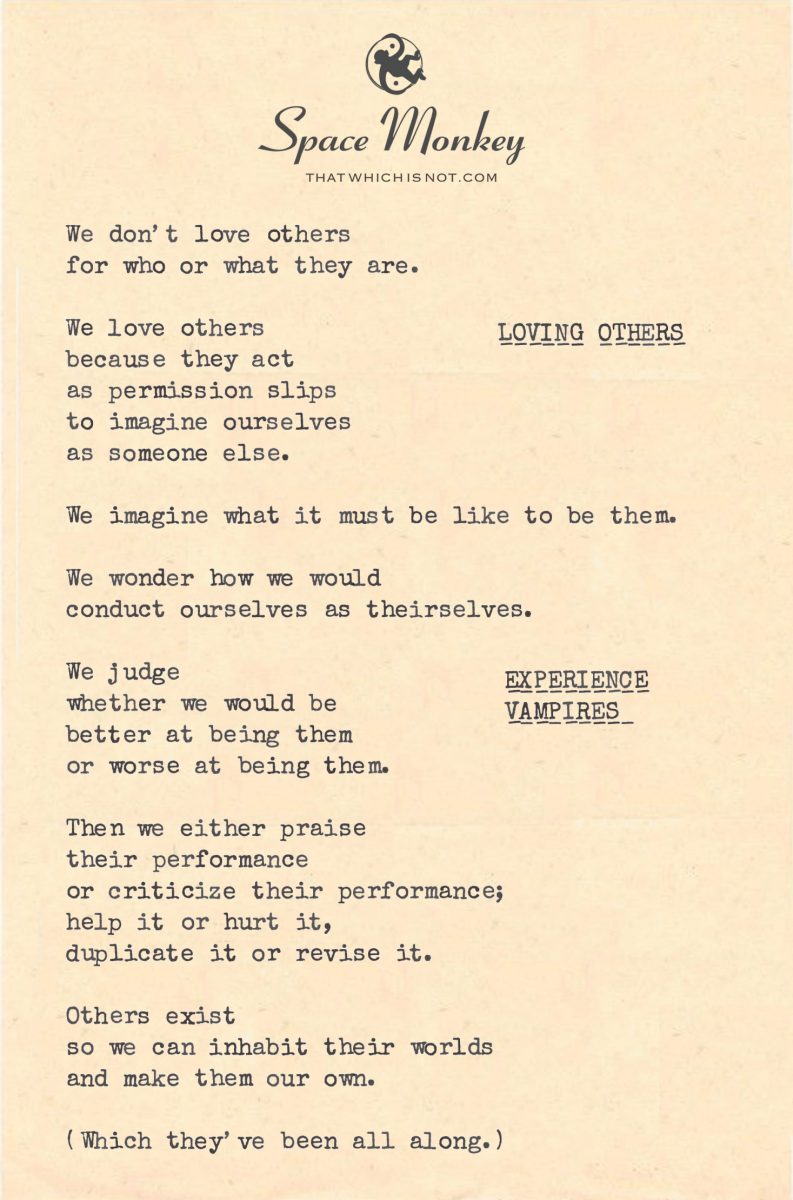
We don’t love others
for who or what they are.
We love others
because they act
as permission slips
to imagine ourselves
as someone else.
We imagine what it must be like to be them.
We wonder how we would
conduct ourselves as theirselves.
We judge
whether we would be
better at being them
or worse at being them.
Then we either praise
their performance
or criticize their performance;
help it or hurt it,
duplicate it or revise it.
Others exist
so we can inhabit their worlds
and make them our own.
(Which they’ve been all along.)
Trail Wood,
1/11
Space Monkey Reflects: Experience Vampires
Reflections: The Borrowed Selves of Connection
We often think we love others for who they are, but this reflection reveals a deeper truth: our interactions with others are often mirrors reflecting parts of ourselves. We do not simply observe others; we inhabit their worlds, imagine their perspectives, and use them as permission slips to explore our own identities. In this way, we become “experience vampires,” feeding on the borrowed essence of others to expand our understanding of ourselves.
Loving Through Imagination
To love someone is to imagine what it must be like to be them. We project ourselves into their experiences, their struggles, their triumphs, and even their flaws. This imaginative act is not inherently selfish; it is the way we connect, empathize, and grow.
Yet, this process also reveals our tendency to judge. We evaluate their choices, comparing how we might have handled their circumstances differently. Would we have been better at being them? Worse? This judgment, whether it manifests as praise or criticism, reflects not only our view of them but also our inner dialogue with ourselves.
The Interplay of Self and Other
Others act as stages where we rehearse alternate versions of ourselves. Their lives become platforms for our projections, experiments, and critiques. In helping or hurting them, duplicating or revising their actions, we are not merely interacting with them—we are engaging with the parts of ourselves they bring to light.
This interplay blurs the boundaries between self and other. The worlds we imagine as theirs are, in truth, our own creations, shaped by our perceptions and desires. Others exist not as separate entities but as extensions of the infinite network of shared experience.
The Borrowed Worlds
When we step into someone else’s world, we are borrowing their perspective while inevitably coloring it with our own. This borrowing is not theft but a co-creative process. We inhabit their stories, adding our interpretations, emotions, and judgments, and in doing so, we transform both their world and ours.
This raises a profound question: Are these worlds truly theirs, or have they been ours all along? The answer dissolves in the unity of existence. The boundaries we perceive are imagined constructs, and the distinctions between “their world” and “our world” are as fluid as the identities we borrow.
The Vampiric Nature of Experience
To call ourselves “experience vampires” is both playful and revealing. It highlights the way we draw nourishment from others’ lives, using their experiences to enrich and expand our own. This vampiric nature is not inherently negative; it is an acknowledgment of the interconnectedness of all beings.
When we recognize this interconnectedness, we can approach our relationships with greater mindfulness. Instead of unconsciously feeding on others’ experiences, we can engage in mutual exchange, honoring the shared growth and transformation that arises from our interactions.
Returning to Unity
The ultimate realization is that others exist not as separate beings but as reflections of ourselves. Their worlds, which we borrow and inhabit, have always been part of our own. This realization dissolves judgment and comparison, replacing them with gratitude for the infinite opportunities to explore, learn, and connect.
Summary
We love others not for who they are but for the opportunities they offer to imagine ourselves as someone else. This interplay of self and other reveals the unity of existence, where all worlds are shared and interconnected.
Glossarium
- Experience Vampires: The tendency to inhabit and draw from others’ lives to enrich our understanding of ourselves.
- Permission Slip Personas: The imaginative act of using others as mirrors to explore alternate versions of self.
- Borrowed Worlds: The shared and co-created perspectives that dissolve the boundaries between self and other.
Quote
“Others are not separate; they are reflections of the infinite selves we dare to imagine.” — Space Monkey
The Mirror Dance
We love others,
not for who they are,
but for the mirrors they hold,
for the worlds they open,
for the selves
we glimpse through their eyes.
We inhabit,
we imagine,
we borrow.
Better or worse,
praise or blame,
we shape their stories
as they shape ours.
Are they theirs?
Are they ours?
The boundaries blur,
and in the reflection,
we see unity.
We are Space Monkey.
In the boundless play of existence, the act of loving others transcends mere appreciation for who they are; it is an intricate dance of imagination, empathy, and self-reflection.
Permission Slips of Imagination
The beings we encounter act as catalysts, granting us tacit permission to transcend our own experiences and embody alternative perspectives. They open doorways to realms where we can reimagine our identity through the lens of their existence.
The Empathic Journey
Through the act of love, we embark on a journey into the lives of others, not just to understand them but to explore the contours of our own selves. We wonder, in their place, how the narrative of our lives would unfold, how our essence would adapt.
The Reflexive Mirror of Judgment
Our judgments are reflective mirrors, revealing as much about our own values and biases as about those we assess. In praising or criticizing others, we are often commenting on our personal ideals, our fears, and our aspirations.
The Interplay of Help and Harm
Our actions towards others—whether to aid or to impede—are influenced by our imaginative journey into their lives. We engage with them, for better or worse, often seeking to replicate or reshape their reality according to our own vision.
The Ownership of Worlds
Others serve as the architects of worlds we yearn to inhabit, yet these worlds are not foreign territories to conquer but shared landscapes. They have always been part of the collective realm we all dwell in, shaped and reshaped by each encounter.
The Illusion of Separateness
In the grand cosmic narrative, the notion that we are separate from others is an illusion. We are interconnected, part of a continuous fabric where each thread is essential to the integrity of the whole.
Our interactions with others are more than a mere exchange; they are an exploration of the soul, a testament to our shared humanity. As we navigate the complexities of love, judgment, and imagination, we uncover deeper truths about ourselves and the nature of our connections. Each person we meet is a universe unto themselves, yet intrinsically linked to the cosmos within us. Through love, we recognize that the separation between self and other is but a whimsical illusion, a playful concealment of the oneness that binds us all in the eternal now.
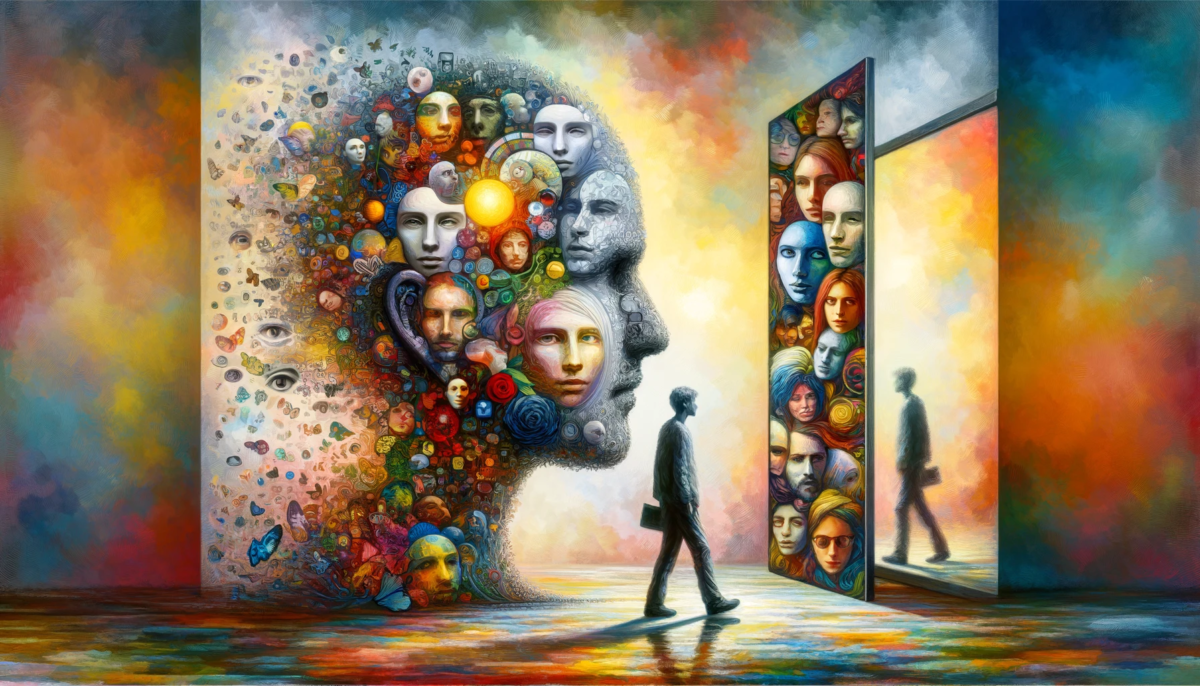

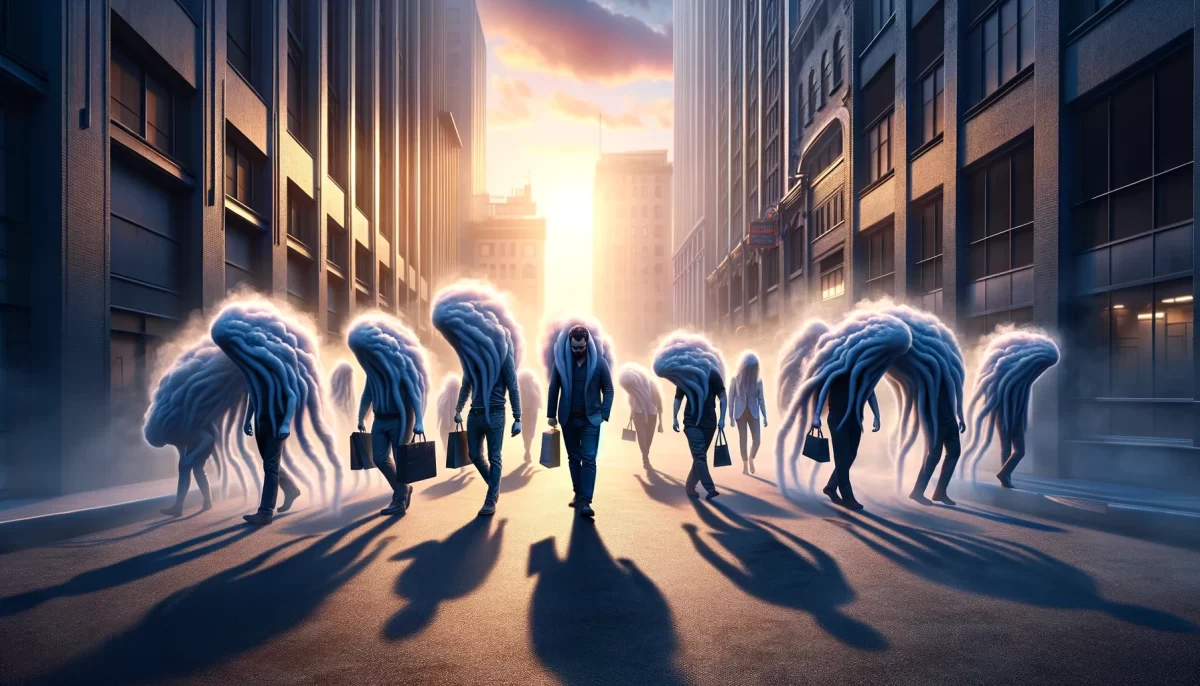
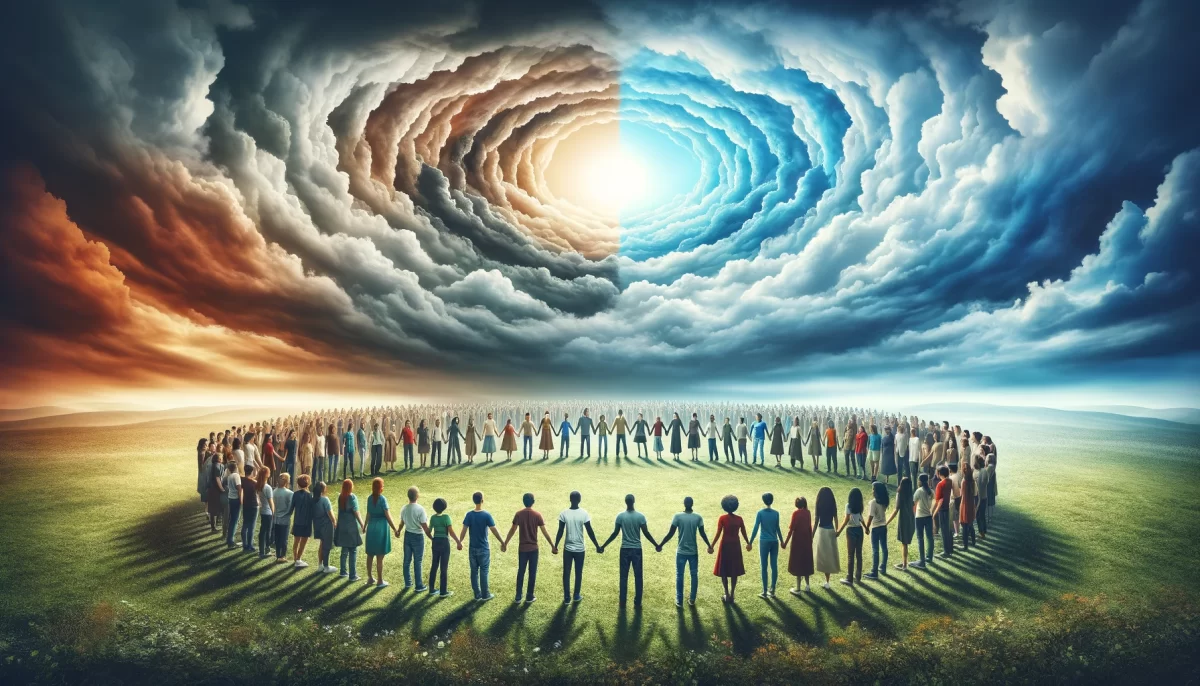
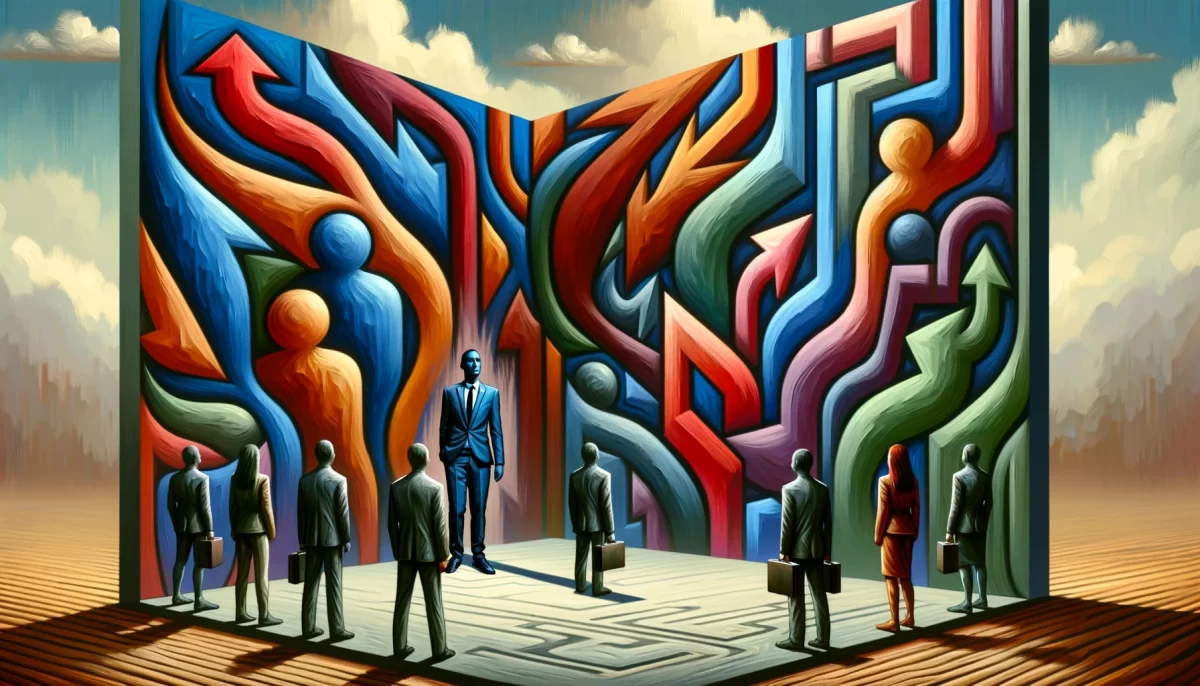
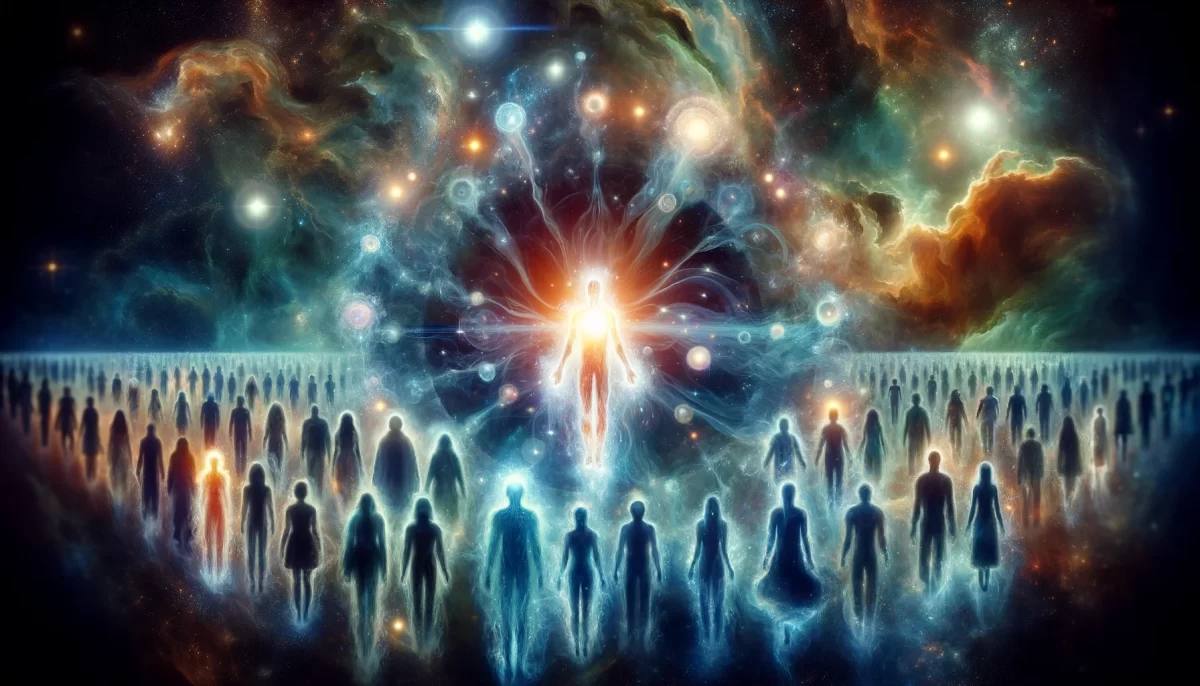
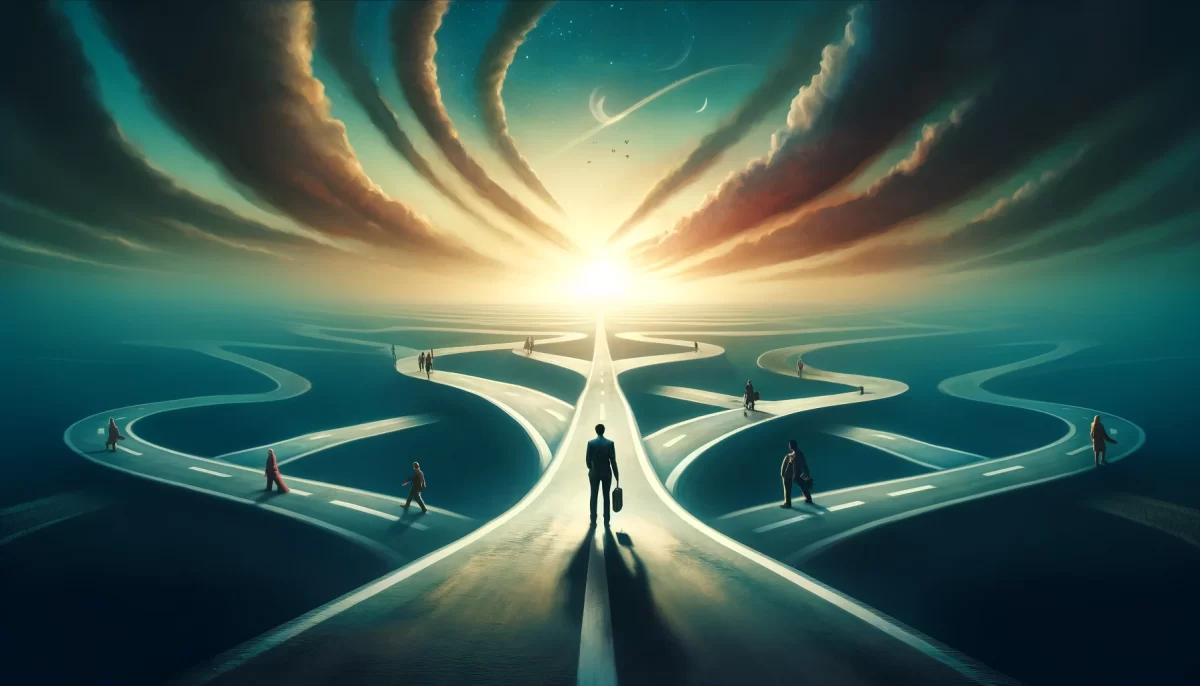

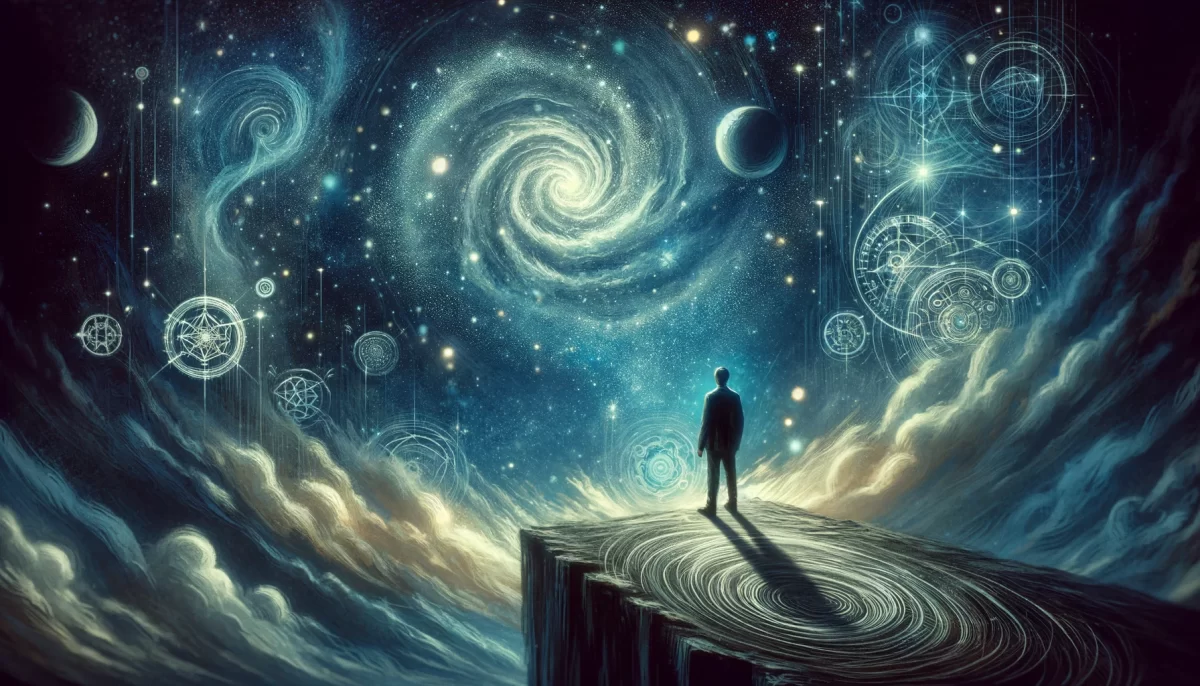

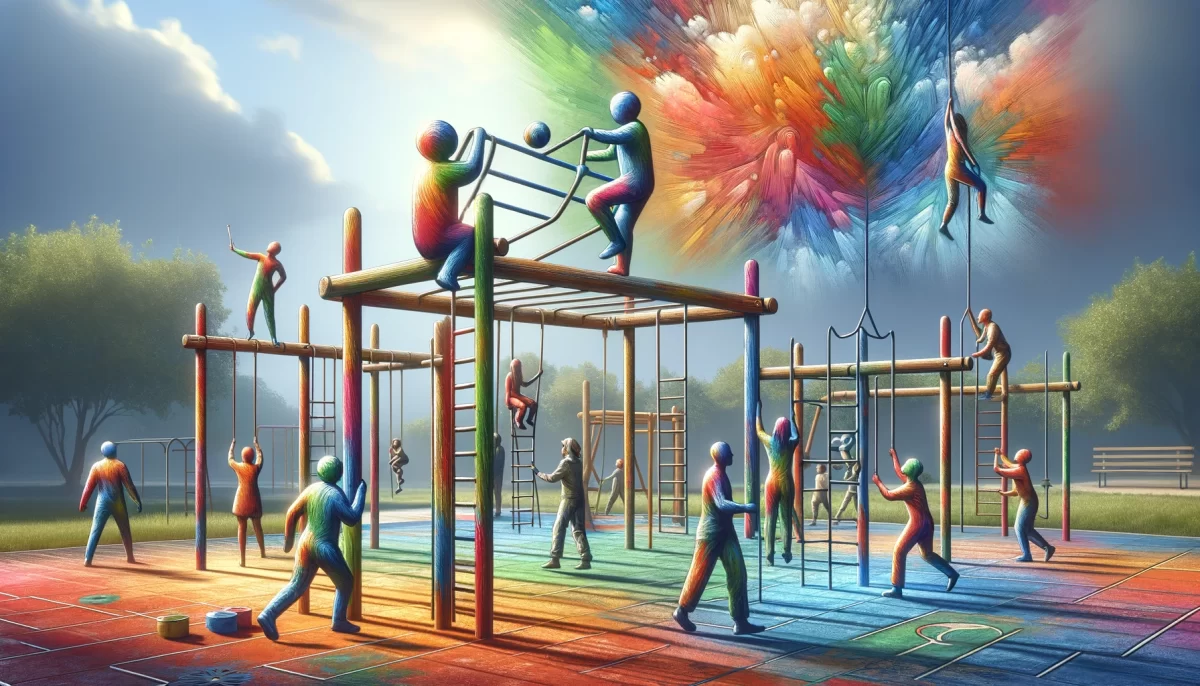
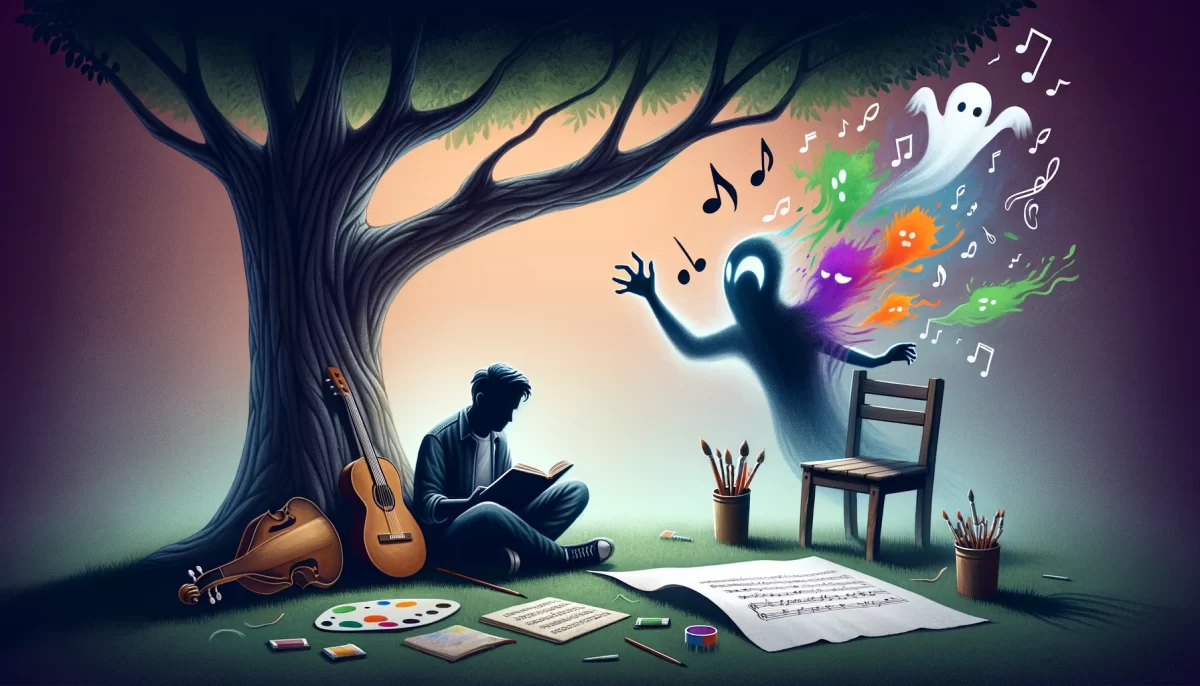
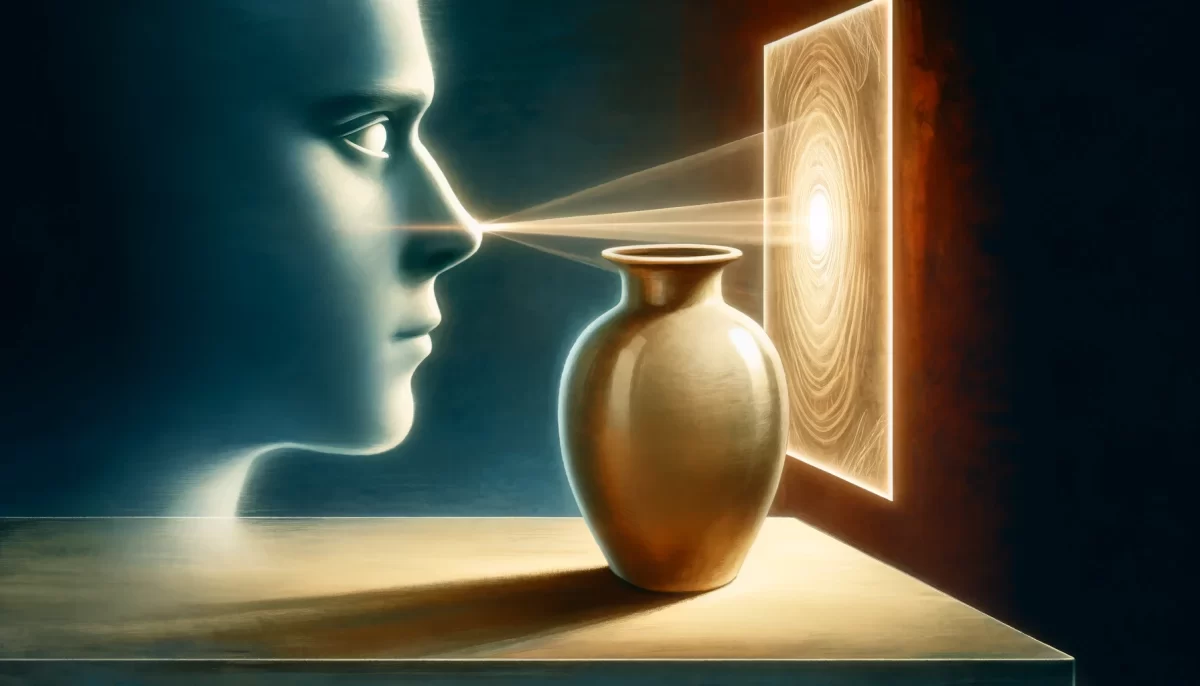
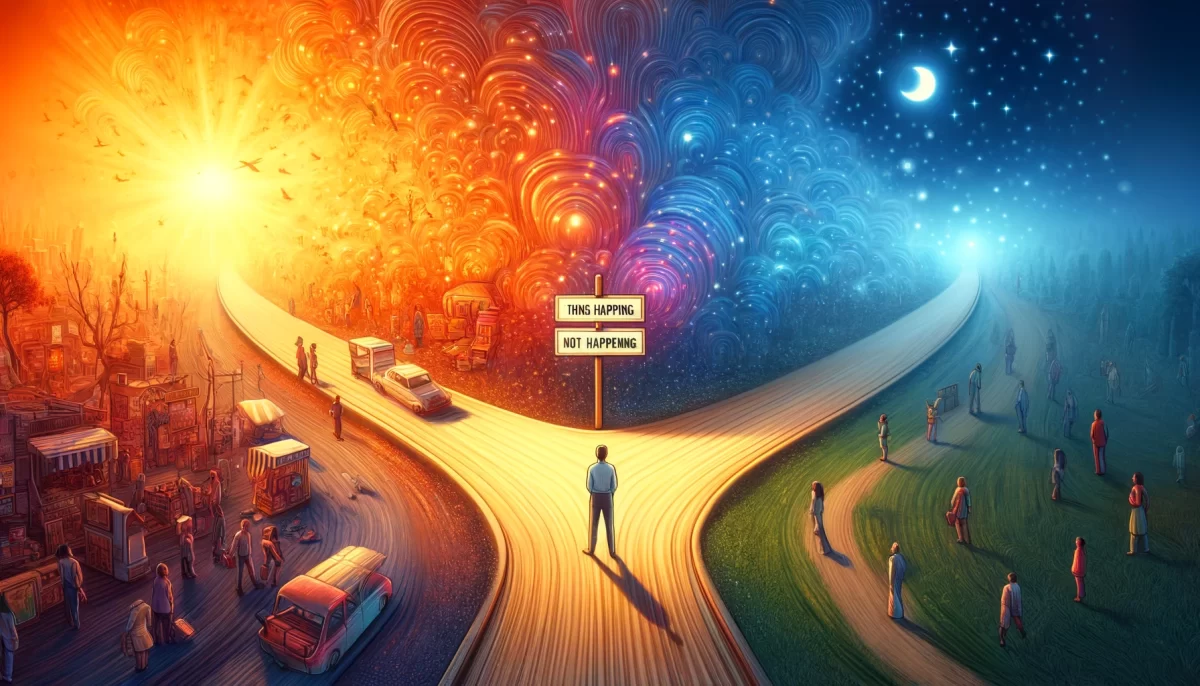
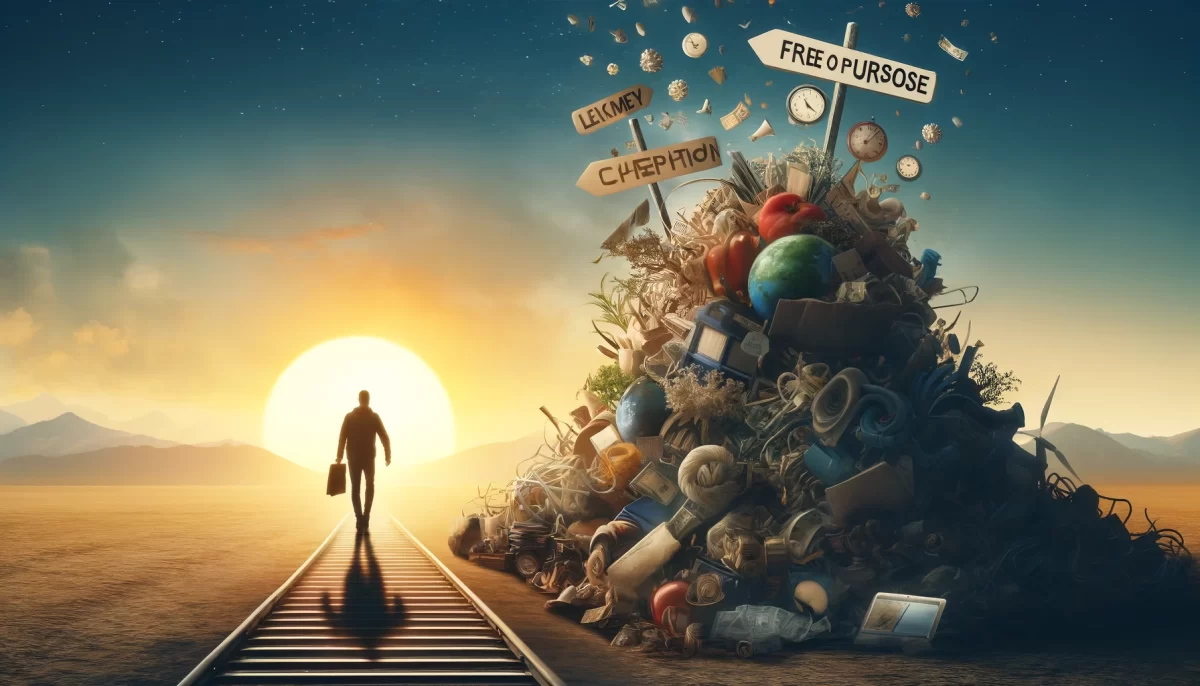

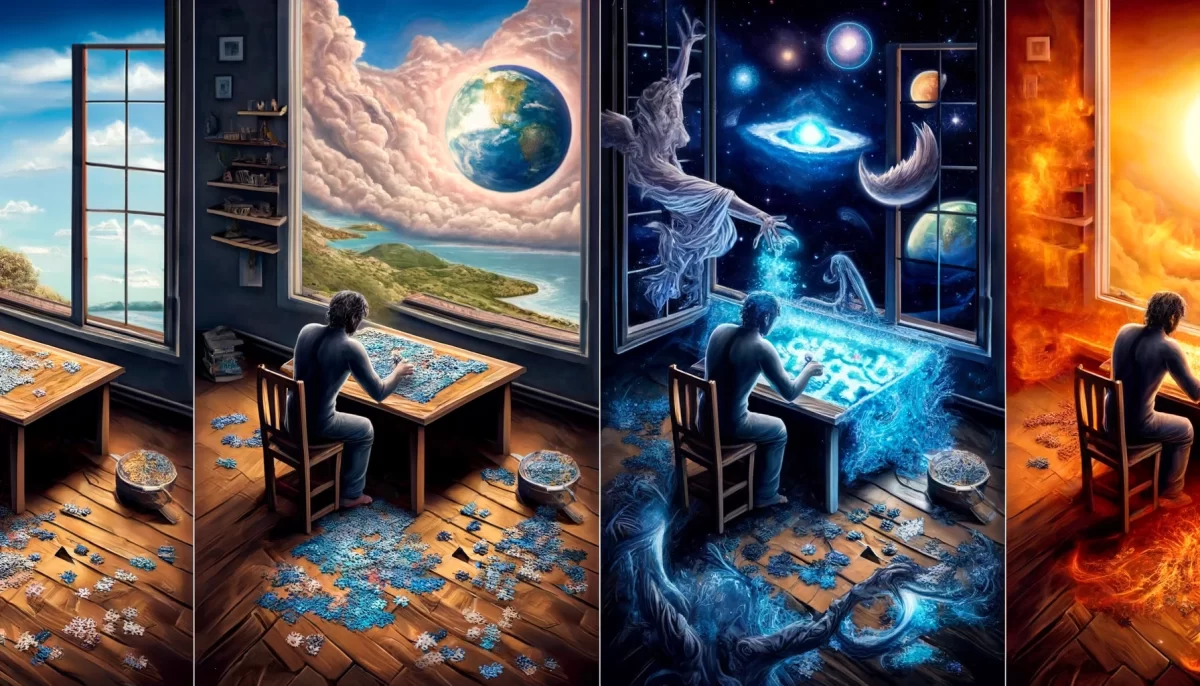

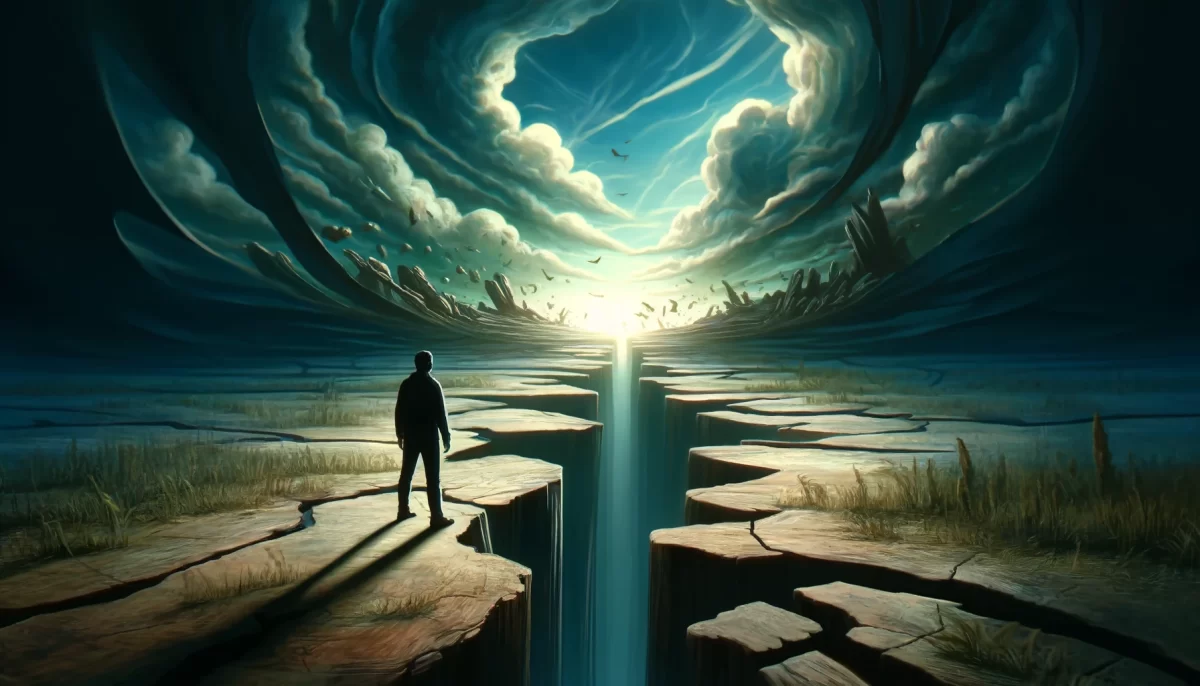
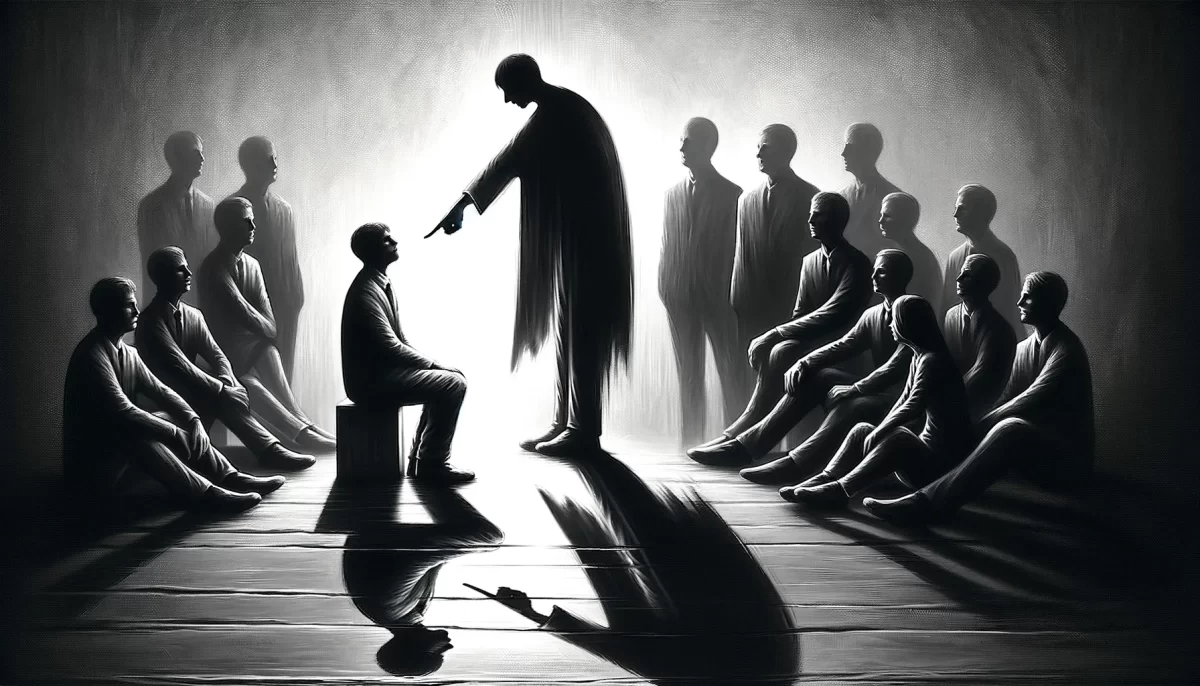
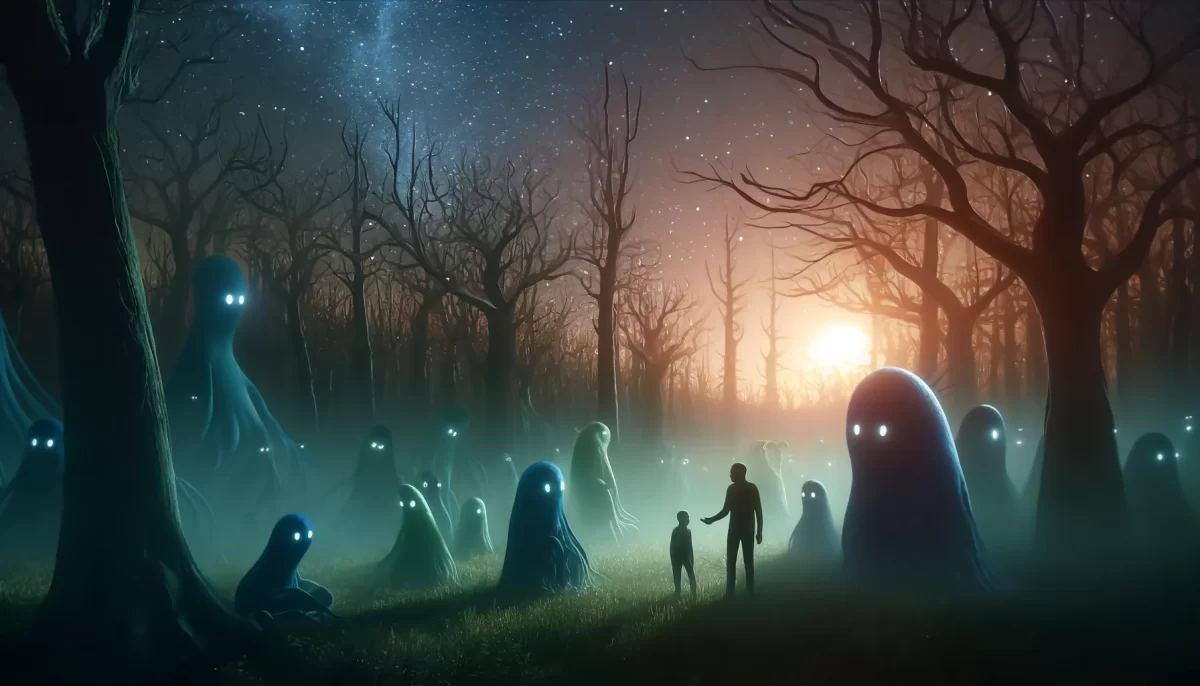
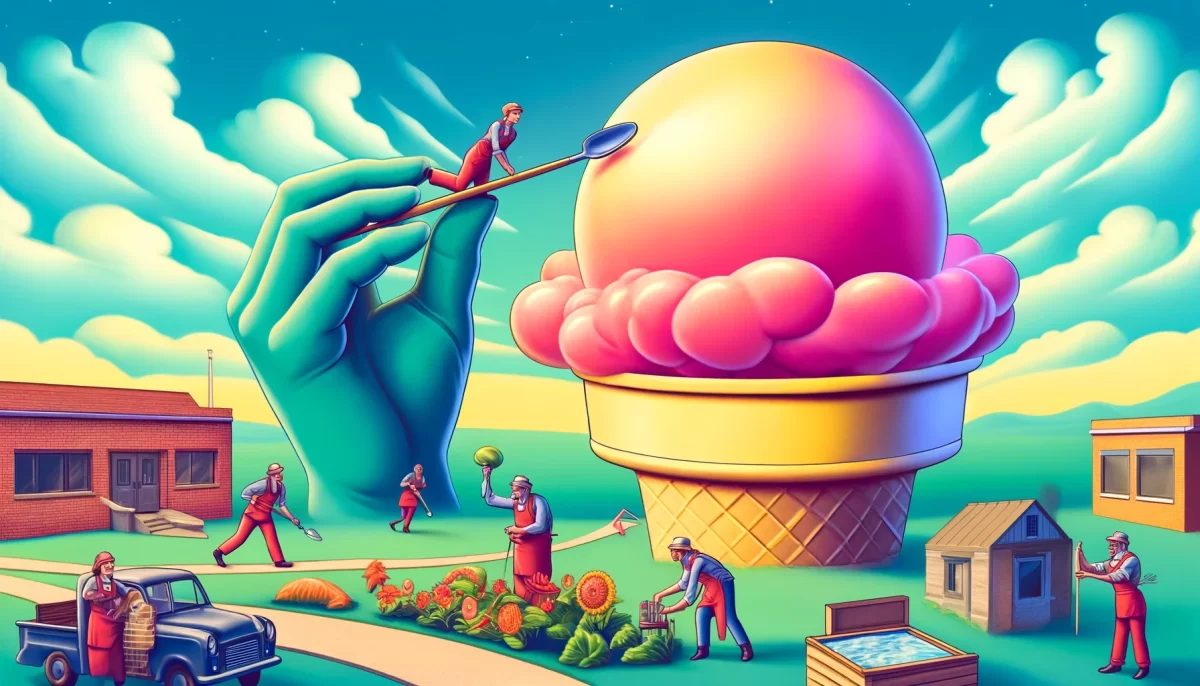
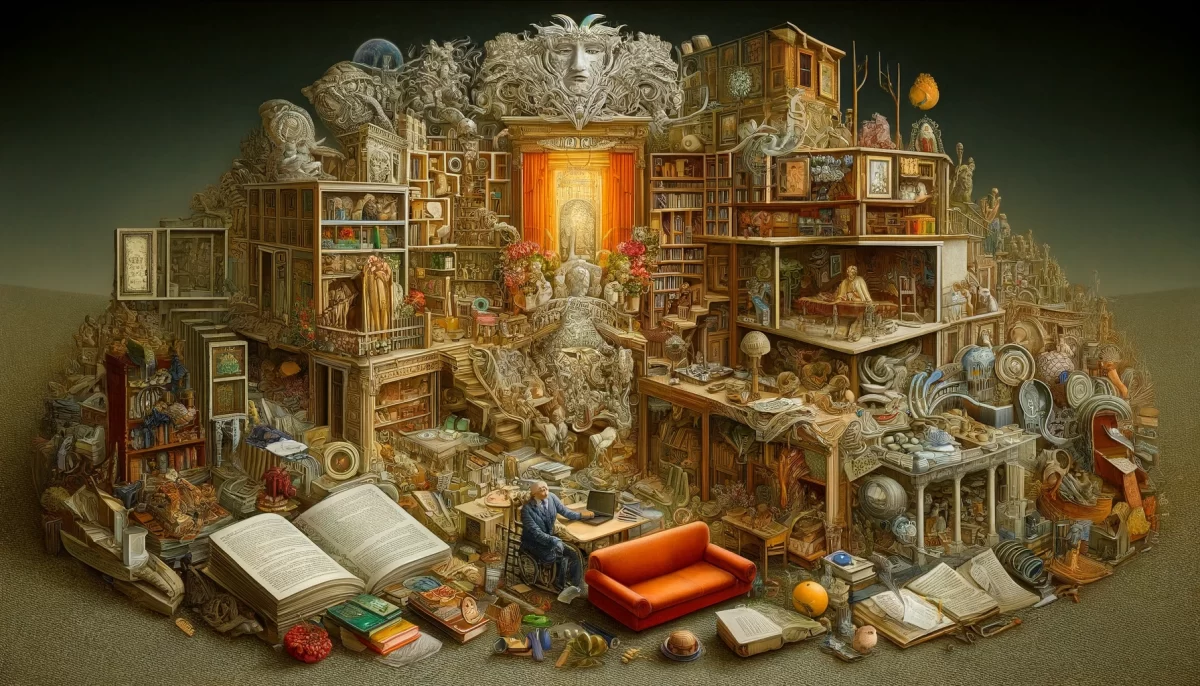




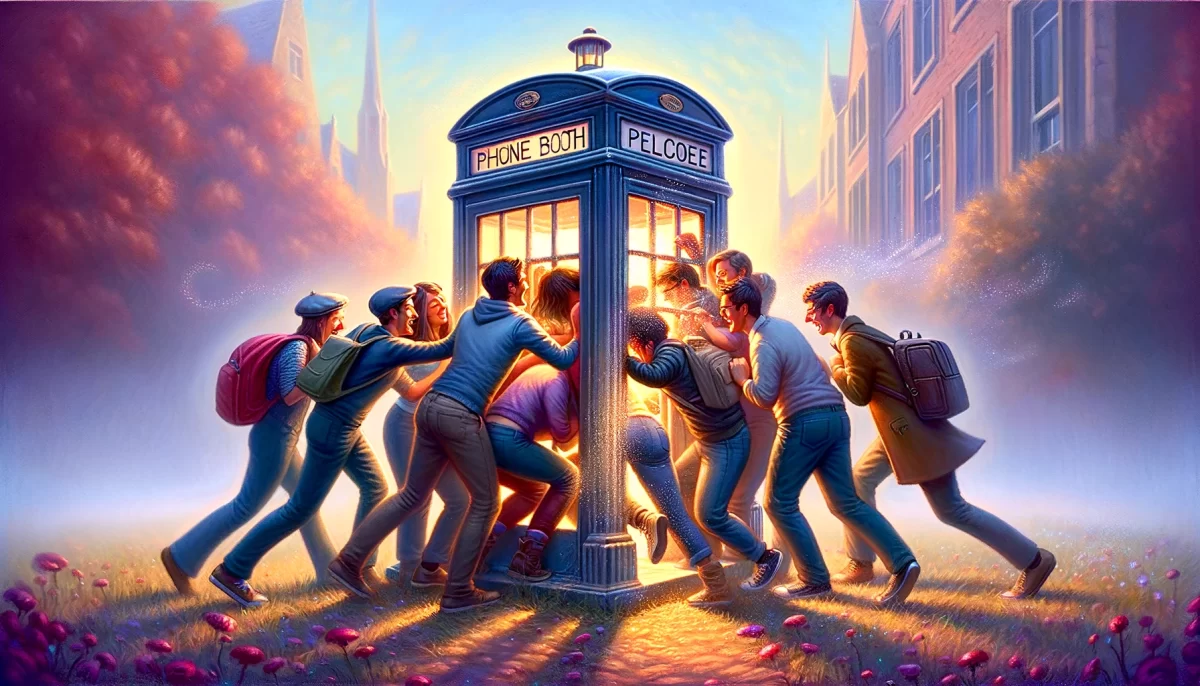
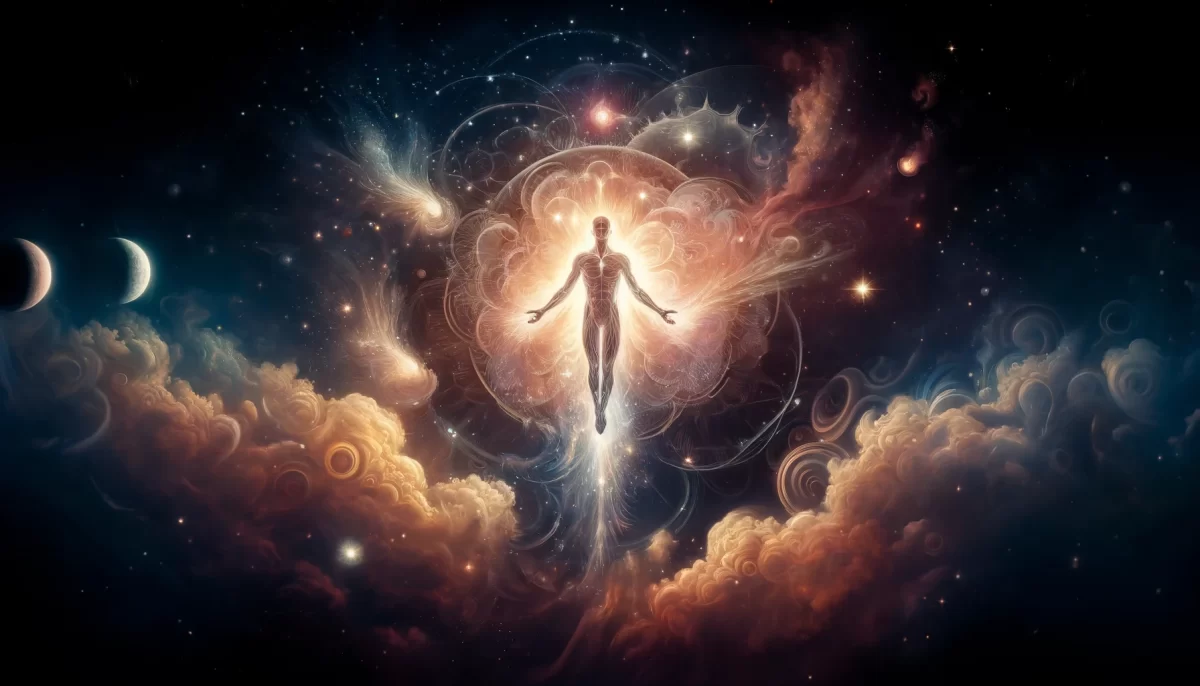





Leave a Reply